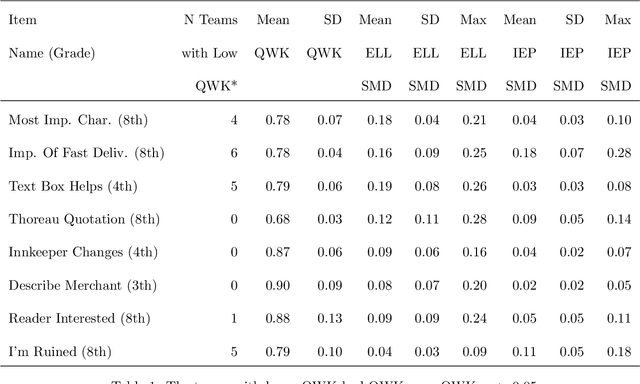Sharon C. Slater
The Rise of Artificial Intelligence in Educational Measurement: Opportunities and Ethical Challenges
Jun 27, 2024
Abstract:The integration of artificial intelligence (AI) in educational measurement has revolutionized assessment methods, enabling automated scoring, rapid content analysis, and personalized feedback through machine learning and natural language processing. These advancements provide timely, consistent feedback and valuable insights into student performance, thereby enhancing the assessment experience. However, the deployment of AI in education also raises significant ethical concerns regarding validity, reliability, transparency, fairness, and equity. Issues such as algorithmic bias and the opacity of AI decision-making processes pose risks of perpetuating inequalities and affecting assessment outcomes. Responding to these concerns, various stakeholders, including educators, policymakers, and organizations, have developed guidelines to ensure ethical AI use in education. The National Council of Measurement in Education's Special Interest Group on AI in Measurement and Education (AIME) also focuses on establishing ethical standards and advancing research in this area. In this paper, a diverse group of AIME members examines the ethical implications of AI-powered tools in educational measurement, explores significant challenges such as automation bias and environmental impact, and proposes solutions to ensure AI's responsible and effective use in education.
 Add to Chrome
Add to Chrome Add to Firefox
Add to Firefox Add to Edge
Add to Edge